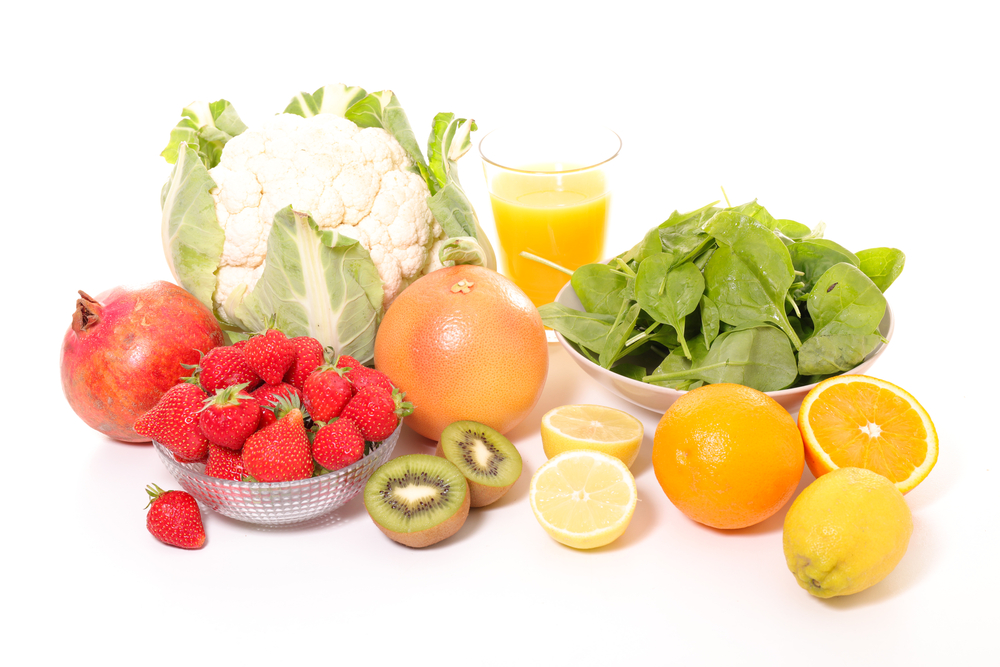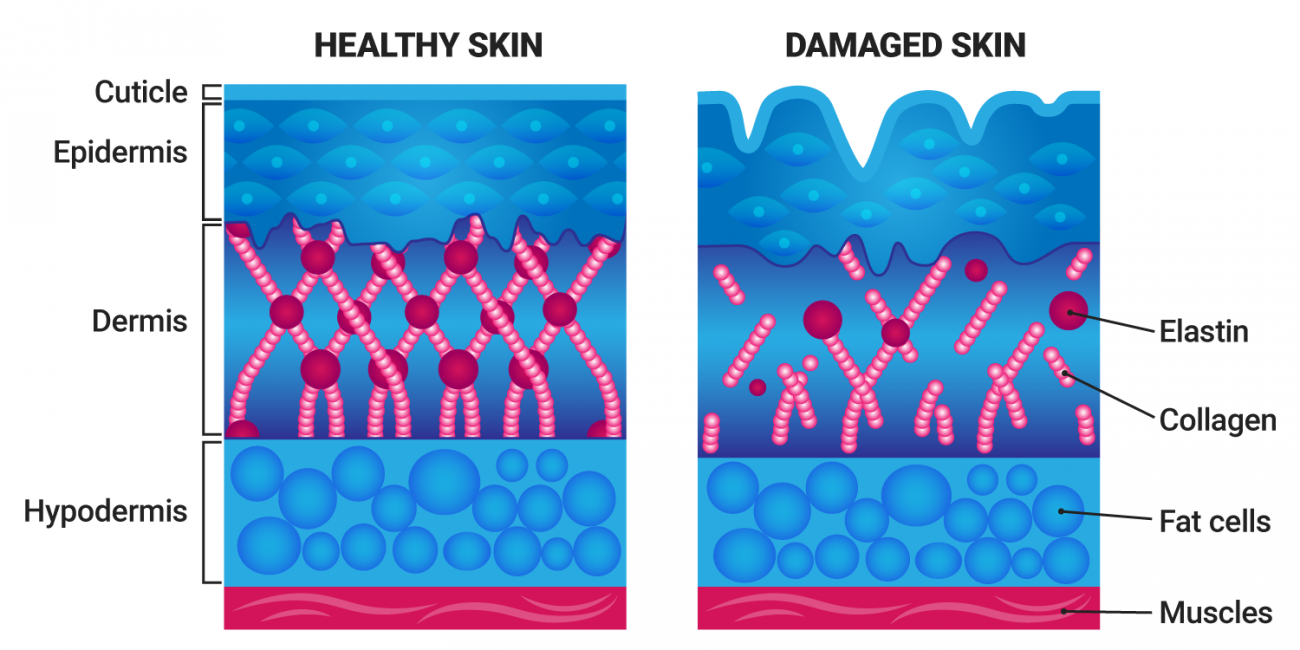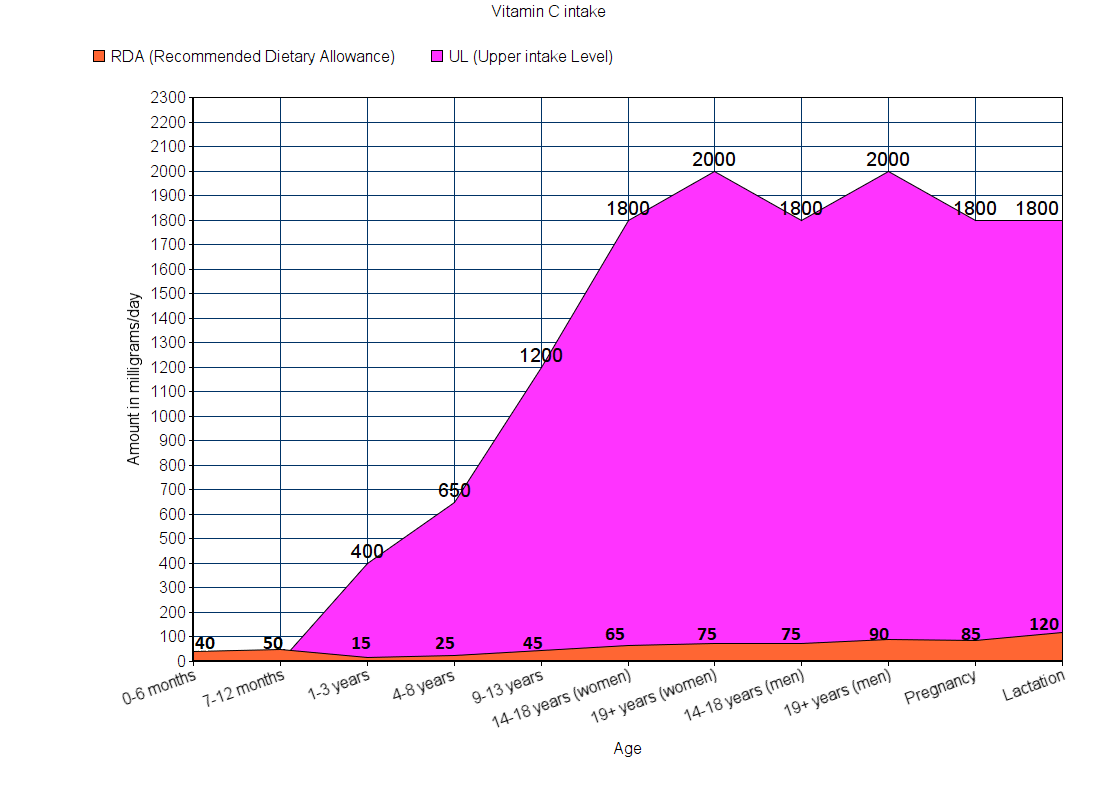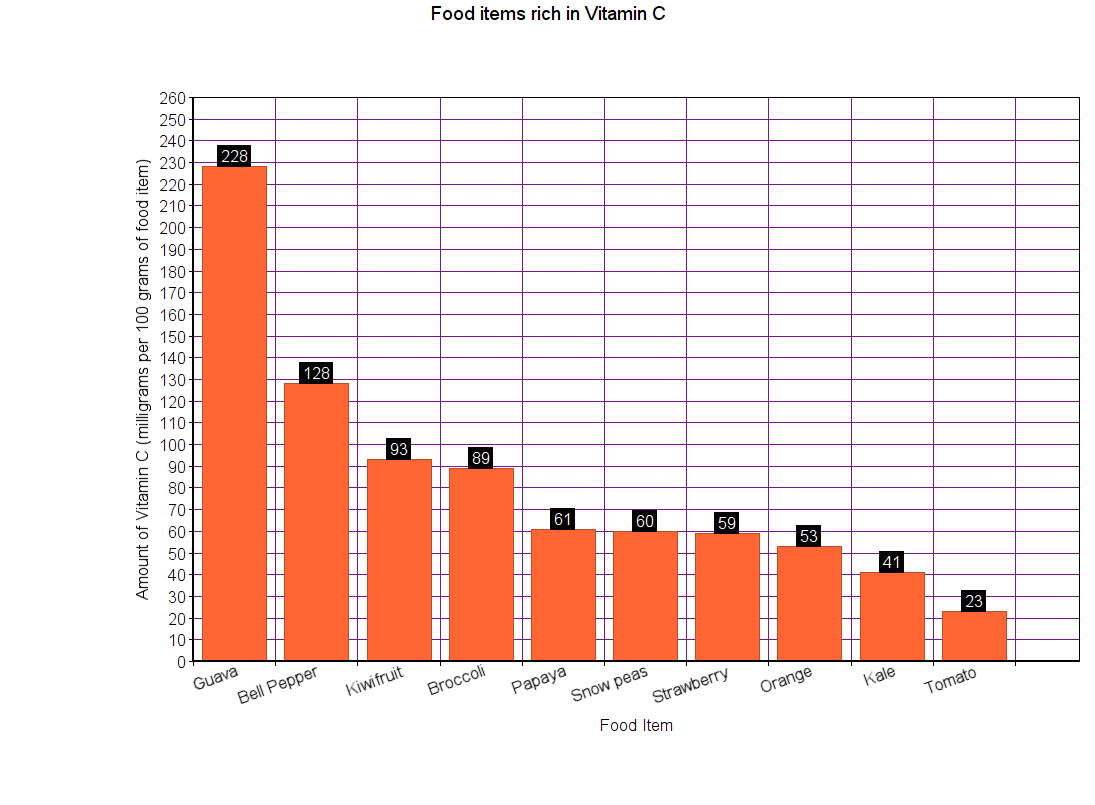Although most plants and animals can produce vitamin C on their own, humans are not capable of that feat. In addition to that, only 18% of the vitamin C that we eat is absorbed into the bloodstream. However, it is available in so many plant and animal products, that the deficiency is rare.
Along with vitamin E, it functions as an antioxidant in your body, protecting the cells from destruction by free radicals.
You can read about other water-soluble vitamins here: Water-soluble vitamins.
Vitamin C is needed for the synthesis of collagen. Besides strengthening several tissues in your body, collagen also helps regenerate dead skin cells. So, the higher the amount of vitamin C in the body, the faster cuts, grazes, and wounds on the skin may heal. By widening the blood vessels and keeping them healthy, it may also reduce the risk of heart diseases and reduce high blood pressure.
Disclosure: While I have taken considerable efforts to make sure whatever written here is true, it cannot be guaranteed to be 100% accurate. This article is only meant to improve your knowledge of various vitamins and help you learn their functions and importance.
I advise you to do your research by following the links in the article and consulting your doctor or dietician before making any huge changes to your diet.
Food for thought: What is collagen, and what does it do?
Collagen
Collagen is a type of protein that constitutes one-third of all the protein in the body. It is fibrous and hard. It is found in skin, muscles, bones, and connective tissues.
Collagens are macromolecules (made up of a large number of atoms) responsible for holding the body together. They are elongated structures that form a strong connection between cells. They make the skin strong and flexible and form protective coatings over internal organs (like kidneys).
Collagen can help heal wounds and replace dead skin cells with new ones. It can be synthesized by the body as well as broken down and reabsorbed by the body.
As you get older, collagen synthesis reduces. This is one of the reasons for wrinkled skin. Exposure to UV light and smoking can also reduce collagen synthesis.
Maintaining a varied and healthy diet, exercising regularly, giving up smoking, and reducing exposure to UV light can help prevent the reduction of collagen synthesis. This can, in turn, keep your blood vessels, skin, bones, joints, ligaments, and muscles healthy and strong for a long time. It also reduces the visible effects of aging, like wrinkled skin.
It improves the immunity of the body because the immune cells in your body contain vitamin C.
Vitamin C helps the body absorb iron more effectively, thereby preventing anemia.
It is also needed for the synthesis of a neurotransmitter (norepinephrine), which is a stress-response hormone.
Vitamin C may also reduce the risk of cataracts. It may also help people who have Diabetes keep their organs healthy.

Deficiency
The deficiency of this vitamin causes scurvy, a disease that killed about two million sailors between 1500 and 1800, even before its discovery in 1932. The early symptoms include:
- Fatigue
- Pain in the joints and muscles
- Nausea (vomiting sensation)
- Diarrhea
- Spotted and pale skin
- Inflamed gums
- Depression
- Partial immobility
As the disease progresses, worse symptoms might appear:
- Dry and bulging eyes
- Swelling of bones and joints in the hands and legs
- Bleeding gums that are purple
- Brown, scaly and bleeding skin that is yellow
- Loss of teeth
- Hair that breaks off easily
- Reduced healing of wounds
- Loss of nerve feeling or function
If left untreated, scurvy always results in death.
Overconsumption
Even though the overconsumption of vitamin C through food is not a problem, one must take care of the supplements. If you consume high doses (more than 1 gram/day), it can cause nausea and diarrhea. In some people, it might increase the risk of kidney stones.
Sources of Vitamin C
For infants less than a year old, RDA couldn’t be calculated. So, AI is used instead. For these age groups, no UL data is available.
Note: All the values are in milligrams.
Best practices
How to absorb vitamin C better?
Heat and light can destroy vitamin C. So, avoid cooking at high temperatures or for a long time.
It is soluble in water, i.e., from the food, it leaks into the water. So, don’t wash once you peel the outer skin. Use as little water as possible for cooking or drink the liquid used to cook.
Light destroys this vitamin. Therefore, store food items in a dark place.
To obtain the maximum amount of vitamin C, eat foods raw when they are ripe.
Who should take supplements?
Adequate amounts of vitamin C can be obtained from food. Therefore, normal healthy people normally don’t suffer from vitamin C deficiency. However, the following types of people are at risk of deficiency and might benefit from supplements.
- Smokers and passive smokers
- People whose bodies have difficulty absorbing iron, since vitamin C improves iron absorption
- People suffering from malnutrition
- Infants fed with boiled cow’s milk (cow’s milk contains less vitamin C)
- People who don’t have a limited diet that lacks in variety
- People who have diseases that affect the absorption of vitamins
Even though supplements can help several groups of people, it is advisable to consult your doctor first.
How long does it take for your body to absorb vitamin C completely?
If you eat your RDA of vitamin C, 80% of it is absorbed within 24 hours. If your intake is very less when compared to your RDY, only 50% of it is absorbed in 24 hours.
How long does vitamin C stay in the body?
It can vary from person to person. But generally, within 24 hours, most of the vitamin leaves your body.
What happens to any excess of the vitamin you consume?
Your body removes any excess amounts through the urine regularly. Only at very high doses, more than 2000mg/day, it might cause undesired effects.
Food vs. supplements
The natural and synthetic forms are identical chemically. However, synthetic forms are cheaper.
Summary:
Vitamin C is a water-soluble vitamin, which our body cannot produce on its own. So, we need to consume it every day.
Vitamin C acts as an antioxidant protecting your body from harmful chemicals. It also strengthens your immune system.
It is found in guava, broccoli, papaya, and citrus fruits.




Leave a Reply